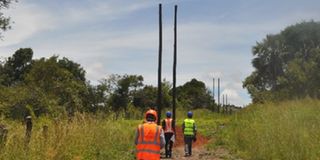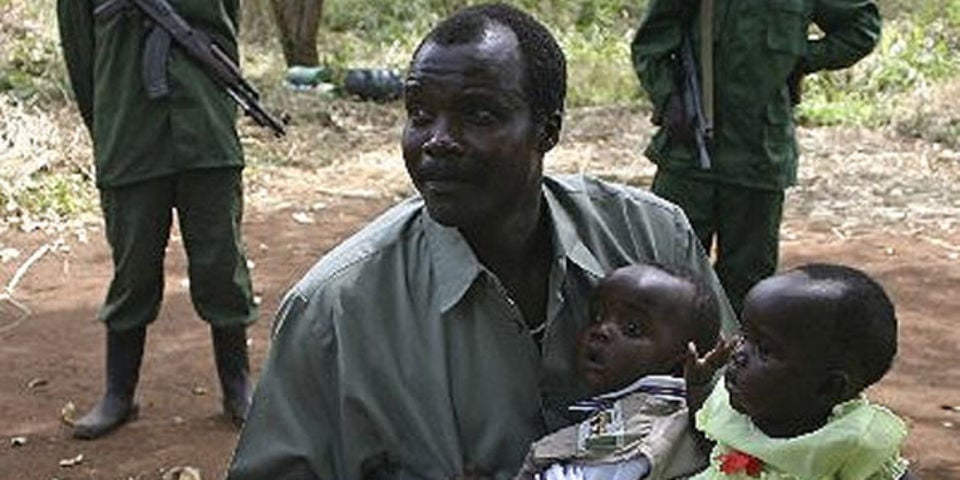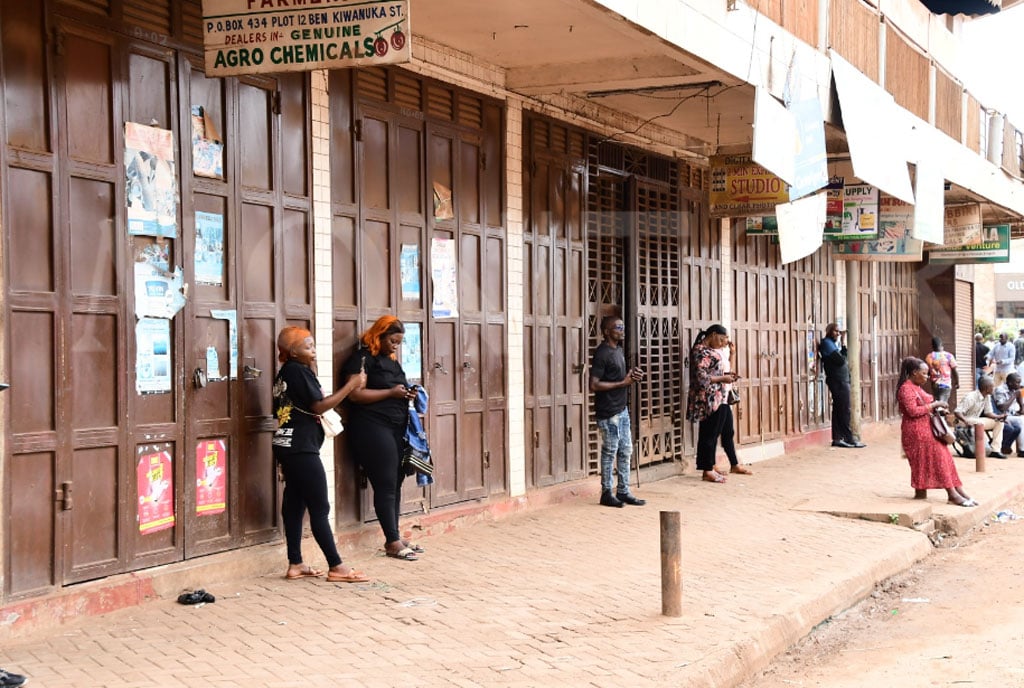Prime
How idle Acholi land is flaring up wrangles

Energy ministry officials inspect works on a power transmission line in Aswa Ranch following a conflict between locals and the ranch management on September 2 last year. PHOTO | TOBBIAS JOLLY OWINY
What you need to know:
- During the launch, it was revealed that up to 250,000 acres of land had been mobilised by the local communities for the programme, with an additional 140,000 acres expected to be given later.
An ambiguous Parish to Market Model Programme recently launched by President Museveni during his tour of the Acholi Sub-region has kicked up a storm following allegations that it was designed to rob local communities of their land.
During the launch, it was revealed that up to 250,000 acres of land had been mobilised by the local communities for the programme, with an additional 140,000 acres expected to be given later.
At the weekend, political, and cultural leaders across the sub-region resolved during a meeting with the Acholi Paramount Chief, Rwot David Onen Acana II, that the implementation of the programme be halted due to suspicion over possible land grabbing and lack of consensus among the people.
Rwot Acana, who was meeting leaders, including Prof Ogenga Otunnu, the coordinator and team leader of the Parish to Market Model, said the chiefdom is instituting a technical team to scrutinise whether the project will impact the lives of his subjects.
Rwot Acana also alleged that the speed at which the programme is being propagated is suspicious.
“The issue of land rights, the people behind the project, who will run the projects are sticky issues that need to be looked into, especially when people are very sceptical about some government programmes and projects,” he said.
“Prof Otunnu, go slow, to give you and us time to study this paper and project well, we don’t want to direct our people to lose land in the name of productively using it with and by people, we don’t clearly understand their interests,” Rwot Acana added.
Under the programme, three private companies (Agromax Ltd, Terra-Agri-Solutions Ltd and AK-Purongo Ltd), in a joint venture partnership with land owners, will receive grants and interest-free loans from the government to develop and manage community-owned land.
The three private companies will also provide and use additional equipment for ploughing, harrowing, planting, spraying and harvesting as well.
While the land for the programme will be registered in the name of the community before the memorandum of understanding is signed, leaders have said the scheme is a ploy to grab land since farmer groups, who want to borrow from the private companies, will be asked to stake the project land as collateral.
Mr Gilbert Olanya, the Kilak County MP, said the project design will potentially fuel wrangles over land ownership.
“You cannot bring the communities into the partnership to provide land and labour and the three companies provide nothing, except they are waiting to get interest-free funds from the government to give to the farmers at high-interest rates and condition them to mortgage their land,” Mr Olanya said.
“This will potentially make our people poorer, first of all, they could lose their land and it is not clear that some individuals in the government want to use the project to amass land and labour to produce enough grains for their gains,” he added.
However, Prof Otunnu maintained that the programme is well intentioned and seeks to develop the region that has been struggling to recover from the two-decade LRA war.
“A society cannot develop without involving the government, and if we are fighting to bring in a partnership for the Acholi people with the government, that is a very good way forward for our people, it is not about robbing land from the people,” he added.
“There is a lot of lies, intimidation, propaganda and drama that have overshadowed the whole thing, I did not take any GPS machines into Palabek, and I have not sold any 40,000 acres of community land to anybody,” he added.
Land allotment
According to the programme document, Terra-Agri Solutions Ltd, for example, secured an estimated 56,000 acres, of which 26,000 acres belongs to a clan in Madiopei Sub-county, Lamwo District, and another 20,000 acres in Padibe Sub-county, and 10,000 acres from Agoro Sub-county.
In the district, the government intends to produce food and perennial crops such as maize, beans, soybeans, sorghum, wheat, rice, palm oil, and macadamia.
In Kitgum District, Agromax Ltd has been allotted an estimated 20,000 acres of land in Orom Sub-county, 20,000 acres at Tiku, 10,000 acres at Okado Ojwat and another 50,000 acres at Namokora (Kiteng).
In Layima and Pabo sub-counties (Amuru District) and Ajulu sub-county (Gulu District), Terra Agri Solutions Ltd failed to secure the land due to contestation over ownership.
In Nwoya District, AK-Purongo Ltd also failed to secure thousands of acres of land from the communities due to contestation over ownership.
The management of AK-Purongo Ltd could not be reached through their known telephone contacts.
However, an administrator at Terra-Agri-Solutions Ltd, who only identified herself as Sarah, admitted that the company was involved in the programme but declined to comment.
“Yes, the company is participating in the programme, but I cannot discuss this matter with you on telephone, I don’t think this would be too proper to speak on telephone,” she said.
Meanwhile, an inquiry email sent to the company for a comment remained unanswered by press time.
On Wednesday, Mr Sando Walusimbi, the Senior Presidential Press Secretary, said that he was not aware of the programme and could not comment.
The Acholi Sub-region, endowed with large and underutilised fertile agricultural land, experiences poverty, mass youth unemployment and social dislocations.
The controversies around the Parish to Market Model together with several public and private projects in the region paint a picture of a ticking time bomb that awaits the sub-region due to vast expanses of land that remain idle or underutilised.
In Nwoya District, for example, for the past six years, there has been an upsurge in bloody wrangles over land between the Jonam and Acholi communities in the former Aswa-lolim game reserve in Gotapwoyo Sub-county, Nwoya district.
Several lives have been lost during this time, with the last incident experienced in May 2020 when UPDF soldiers shot dead four people at Obira South village, Gotapwoyo Sub-county, Nwoya district.
In 2019, the two tribes were embroiled in a heated conflict over a compensation scheme by Uganda Electricity Transmission Company Limited (UETCL) for a 9sqkm stretch of land at Yagopino, in Gotapwoyo Sub County, Nwoya district.
The Acholi Chiefdom and the Acholi Parliamentary Group (APG) recently sued the government, accusing it of encroaching into and grabbing more than 38,446 hectares of land belonging to communities in Lamwo and Pader districts.
The chunks of land in question neighbour Aswa Ranch located between Pader, Gulu and Lamwo districts.
The suit was filed against the Attorney General and Uganda Livestock Industries Ltd, Banuti Ranchers Ltd, ARPE Ltd, and the Commissioner Land Registration at Gulu High Court.
The chiefdom accused Uganda Livestock Industries Ltd (ULI) of creating a new freehold title over the Aswa Ranch for 15,930 hectares inside Lamwo District without the knowledge of the land owners, traditional and local leaders, including the Lamwo District Land Board.
In October 2022, Rwot Acana wrote to President Museveni seeking to block a looming eviction of thousands of people from seven villages in Pader district as the government starts massive grain farming.
Rwot Acana in his letter asked the President to halt any activity in areas being contested by both the community members and NAGRC and DB.
On July 14, 2022, President Museveni directed the Office of the Prime Minister and the Finance Ministry to provide all that was required to kick start the strategic interventions by the government to boost large scale food production.
Mr Museveni’s directive was followed by an August 1, 2022, Cabinet sitting at State House Entebbe in which it adopted a paper on strategic interventions to boost food and animal feed security in the country presented by the Agriculture Ministry.
Whereas the allotted land is part of the state-owned public land and part of Aswa Ranch, communities neighbouring the projects have cried foul over the development, saying their land has been encroached on in the process.
JUSTIFICATION
The Acholi people have remained poor despite multi-trillion shilling investments undertaken by the government in the area since 2002 while the Lord’s Resistance Army (LRA) war came to an end.
The sub-region has continued to suffer land disputes.
Mr Ambrose Olaa, the prime minister of Ker Kwaro Acholi, blames laziness and limited financial capital to utilise the vast fertile land as reasons why most people are opting to rent out their land to investors.
“Many people from many parts of the world see that despite us possessing very fertile land, we are not fully utilising it, it’s the reason some of them are willing to heavily invest their money by either buying or hiring majorly to set up farms,” Mr Olaa said.
But Prof Ogenga Latigo, the former Agago county MP, believes it is the role and mandate of the government to support the farming communities to ensure their land is put to equitable use.
“The problem is that we are not using the land properly, and we cannot use the land properly if we are not empowered,” he said.




